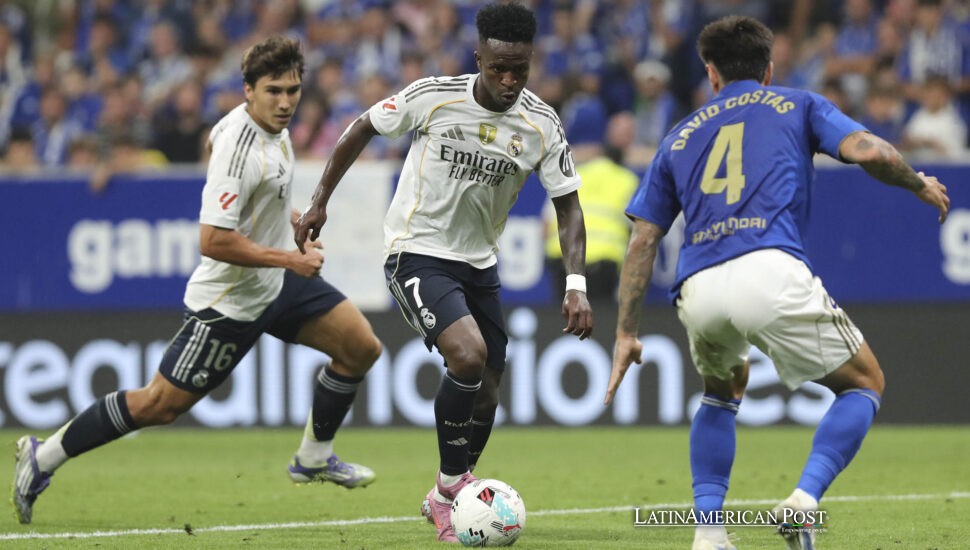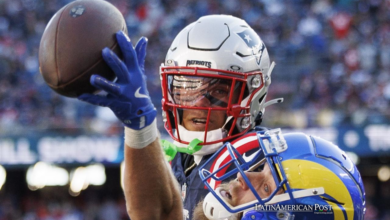Brazilian Star Vinícius Roars Back as Madrid’s Meritocracy Bites

After five matches without a goal or assist—his energy drained by an endless season and a stunted preseason—Vinícius Júnior woke up in Oviedo. Benched by new coach Xabi Alonso in a bold call, the Brazilian entered, set up one goal, scored another, and reminded Real Madrid—and a hostile crowd—what still lies in his boots.
A benching that changed the mood—and the message
Xabi Alonso didn’t ease into power at Madrid. He made it clear that status would no longer be a protection for anyone. Days after fielding questions about “untouchables,” he left Vinícius on the bench—no injury, no heavy minutes, just choice. Rodrygo started instead on the Brazilian’s favored left flank.
“He came in really well and was decisive,” Alonso said afterward, praising the spark Vinícius delivered when he stepped on the pitch. The coach added the decision was “thinking of the team,” words that echoed across every line of his first selections.
For a club accustomed to hierarchy as law, Alonso shifted the economy to one based on performance. The old “military service” that young players once endured before being selected for the XI is now a thing of the past. Into the lineup walked 18-year-old Argentine Franco Mastantuono, barely unpacked in the squad. The message is blunt: switch on or sit. Alonso wants one current, not divided streams of stars and substitutes.
The system, the stars, and a jolt to the status quo
Alonso’s blueprint in Oviedo was unmistakable: tempo in possession, personality with the ball, counter-pressing in the attacking third, a block that bites. It even brought a different shade from Kylian Mbappé, more committed off the ball than he often showed at Paris Saint-Germain. That was part of the subtext to Vinícius’s demotion.
Alonso isn’t engraving habits in stone. Rotations will depend on opponents and on legs, especially once three-game weeks return. He needed to restore Rodrygo’s confidence after leaving him idle in the opener. He needed to prove that competition is a real thing. Vinícius read the signal. The left wing is no longer his private stage. Rodrygo has reclaimed it. On the right, Mastantuono and Brahim Díaz are pushing. Soon Jude Bellingham, once his shoulder heals, will wander into the front line again. Minutes now have to be earned. For a player who thrives on the edge, that can be fuel.
Hostility, heat, and a response with teeth
Oviedo greeted Vinícius with venom. “Tonto” rang from the terraces, beach balls bounced like mockery across the pitch. If the intent was to rattle him, it had the opposite effect. He flew into the match—too eagerly at first, booked for a theatrical fall in the box—but then redirected his energy into Madrid’s press. He harried defenders, fought for loose balls, and waited for the moment.
It came when he squared for Mbappé, who finished cleanly. Then, in stoppage time, his drought snapped. A strike that had been missing since June 27 in any competition, and since April 5 in LaLiga, finally found the net. Seven league matches without a goal ended with a cathartic swing.
The celebration revealed the combustible side he has promised to control. Hand cupped to ear, daring the boos; a gesture toward the stands interpreted as “a Segunda,” mocking the home team’s place. Mbappé, mindful of optics, covered Vinícius’s mouth briefly in their embrace—an instinct that spoke volumes about new leadership and hierarchy. The Brazilian’s fire, Alonso knows, is both weapon and risk: the spark that makes him unplayable on his best days, the streak that can consume him on others. The challenge is to keep the fire in the game and out of the stands.
A gilded warning in a meritocracy
Alonso inherited a squad thick with status. In less than two weeks, he has made that status provisional. His post-match words soared over individuals and landed on collective principles: the dominance with the ball, the rhythm, the pressing, and the “excellent attitude playing as a team.” Yet beneath those remarks lay a warning. There will be rotations. There will be stars for teenagers if they deserve them. And there will be consequences for slumps, even if your name is sung worldwide.
For Vinícius, Oviedo felt like a hinge in the season. Exhausted by the Club World Cup’s drag, dulled by a shortened preseason, and dulled further by five quiet games, he needed a jolt. The bench supplied it. He needed a foil, and found one in Rodrygo’s return. He needed to connect with Madrid’s new alpha, and did by feeding Mbappé. He needed to score, and he finally did.
Harder nights will come. Alonso may bench him again, or shift him centrally, or rotate him out altogether. The temptation will remain to answer the terraces with gestures rather than goals. But in Oviedo, Vinícius argued in the language he knows best: acceleration, incision, and end product.
Also Read: South American Soccer’s Shame Night Exposes Cracks Beyond the Stadium
If Alonso’s Madrid is a meritocracy, Vinícius just submitted his résumé. One assist. One goal. And the reminder that Real Madrid’s Brazilian spark can still set matches—and narratives—on fire.





